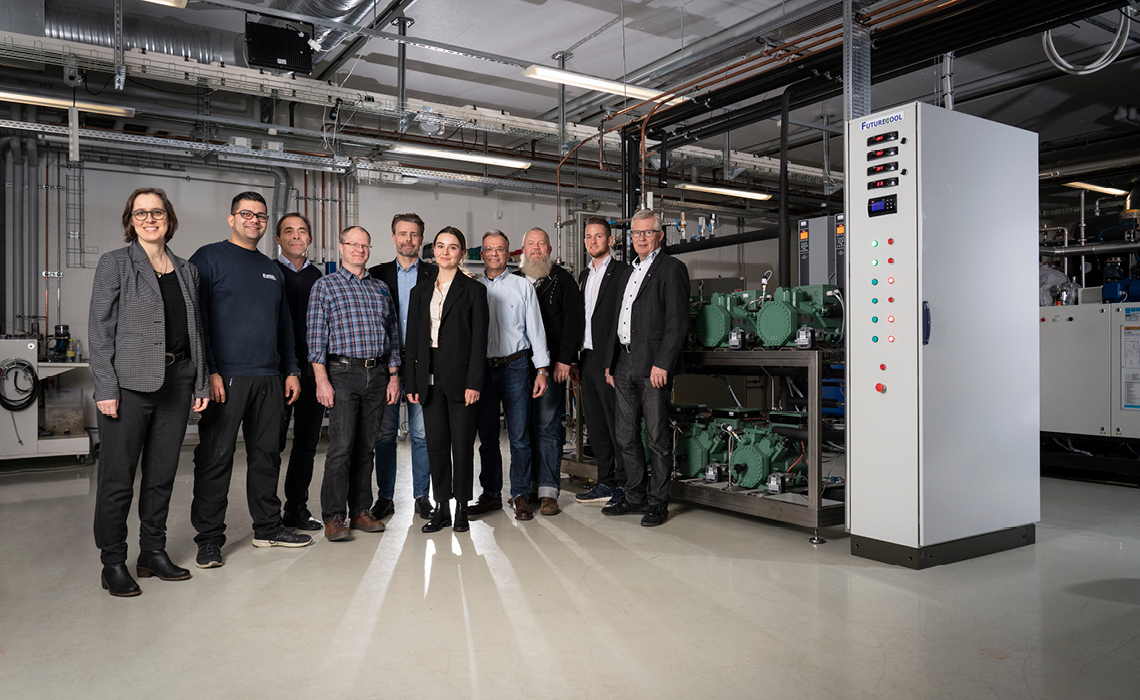It has been installed in the basement of Aarhus Maskinmesterskole in late 2019 and was put into operation shortly afterwards – a brand-new CO₂ unit that will make it much easier for students to connect the theoretical teaching taking place in the classroom with practical engineering:
“The facility is built for students to see and understand how things are connected. At the same time, they now get the possibility to work with a CO₂ unit of highest quality. That’s also very helpful for the teaching,” underlines Lars Astrup, Marine Engineer and Teacher at Aarhus Maskinmesterskole. He is one of the teachers who will introduce students to the control, operation and troubleshooting of the CO₂ system.
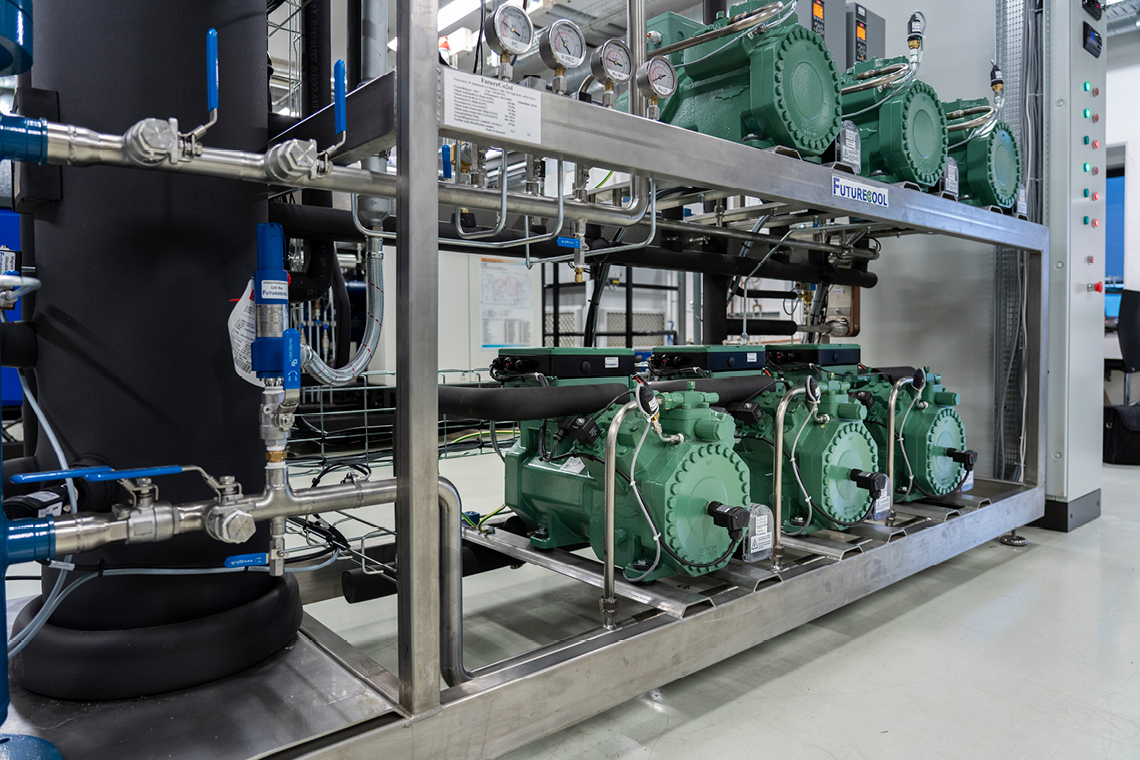
Collected intelligence
For the application, BITZER has delivered three ECOLINE ME reciprocating compressors for subcritical applications as well as three ECOLINE+ reciprocating compressors for transcritical applications that are equipped with Line Start Permanent Magnet Motor, VARISTEP capacity regulation and IQ module. The BITZER IQ module is an advanced protection module that monitors the condition of the compressors. It gives teachers and students the possibility to quickly view and analyse historical as well as direct operational data. The IQ module optimises the system by gathering and monitoring temperature, pressure and oil system data. With the collected data, students can monitor the unit and its energy consumption and, subsequently, give suggestions for its optimisation. The unit itself can be monitored via the BITZER Electronics Service Tool (BEST), which is free of charge and can be accessed via smartphone, tablet and computer.
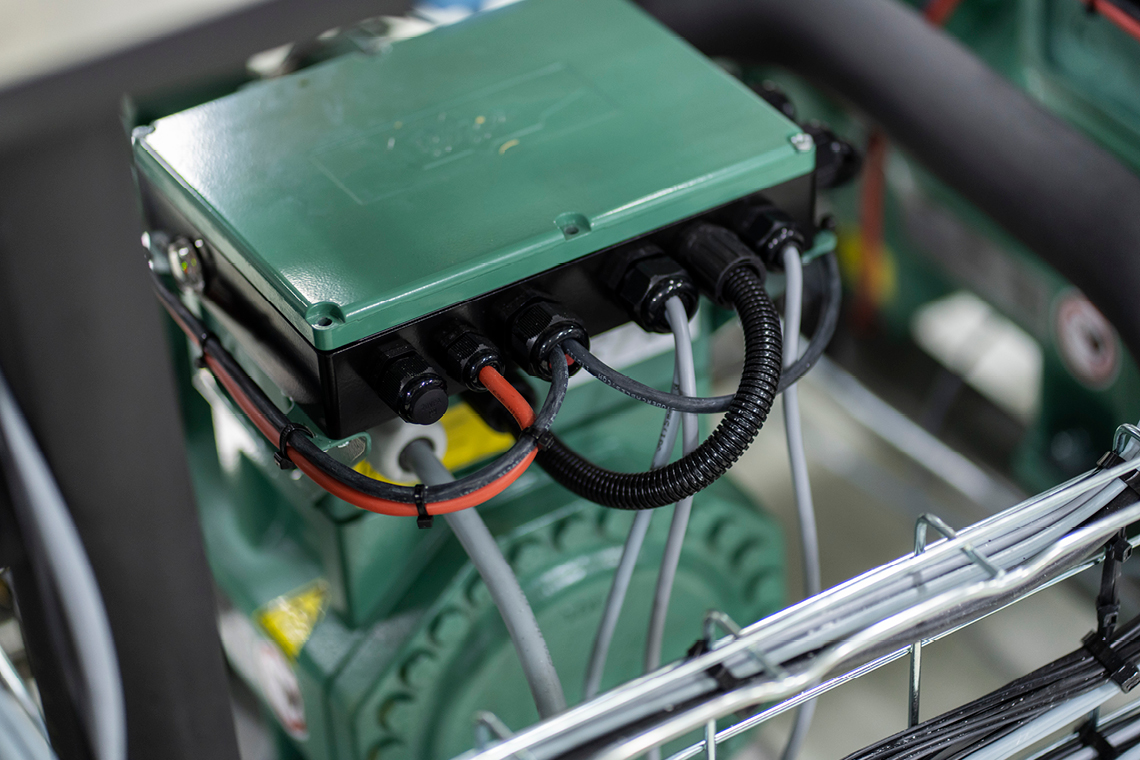
Supply and demand
The CO₂ system is financed by the Danish foundation Den Danske Maritime Fond (The Danish Maritime Fund). All the companies involved have offered the individual components at a minimum price. This way, the unit has been built based on the market’s leading technologies, giving the students the opportunity to work with a CO₂ system of sublime quality.
The rack was built and installed by the company JF Køleteknik whose specialists designed the unit together with Per Skærbæk, Consultant at Aarhus Maskinmesterskole and Owner of the concultancy agency Cool Partners . JF Køleteknik has previously worked on building and constructing refrigeration systems for teaching purposes. Since 2009, they have built 130 CO₂ refrigeration units – all with BITZER compressors. Morten Hansen, Owner of JF Køleteknik, tells: “We have a lot of experience in this area. When all partners meet and share experience as we did with the Aarhus Maskinmesterskole project, I always walk out the door wiser than when I came in.”
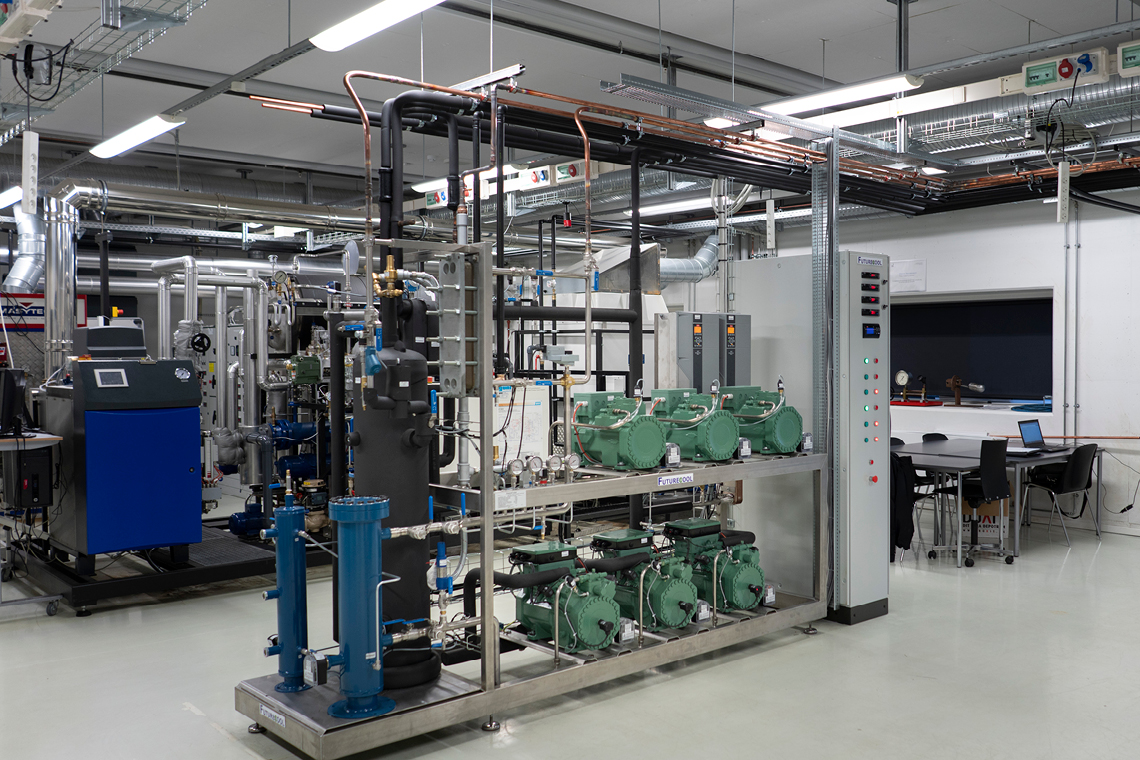
H. Jessen Jürgensen sold the BITZER components to JF Køleteknik and supported the project with an extra discount and technical support. Both JF Køleteknik and H. Jessen Jürgensen find it difficult to recruit new employees with an interest in refrigeration technology. So they have an extra interest in supporting the project: they depend on eventually finding qualified staff with knowledge of CO₂. “We are always looking for engineers who have good knowledge about refrigeration and CO₂ systems. When we support such a facility for educational use, we hope that more young engineers will catch interest for refrigeration. In this way, we can recruit more qualified workers in the long run,” reports Kim Kirkegaard, Regional Manager at H. Jessen Jürgensen.
Sustainable education
The fishing industry has requested more knowledge about larger CO₂ industrial refrigeration systems for maritime use. “This interest is very important for Aarhus Maskinmesterskole. In the long term, we must deliver the competencies that the market demands, including applied research,” tells Søren Skøtt Andreasen, Head of Research at Aarhus Maskinmesterskole.
Aarhus Maskinmesterskole wants to enable their students to handle the refrigeration of the future – and there is no way around CO₂: all future students at Aarhus Maskinmesterskole will get in touch with the CO₂ unit. New European legislation also points towards CO₂ as a refrigerant, since the legislation requires a step-down regulation of HFC and HCFC refrigerants with high GWP values. Teacher Lars Astrup often meets students with a special interest in a sustainable future that focuses on natural refrigerants such as CO₂, propane and ammonia. “With the new CO₂ unit, I can also focus my teaching on how we work to create a sustainable cooling industry – here, the unit is an optimised and more climate-conscious solution,” he states.
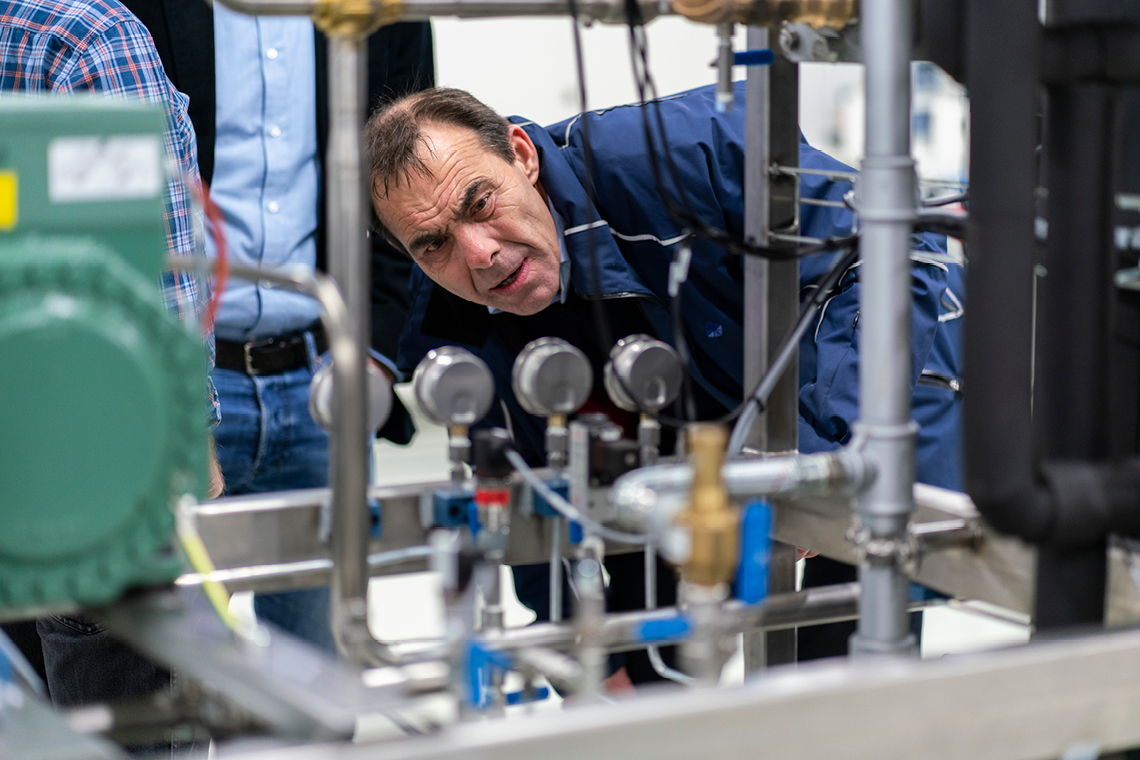
The refrigeration application must also form the basis for new external teaching. Interested parties from the refrigeration industry will get acquainted with CO₂ refrigeration at a higher level. “With this project, all parties involved contribute to the development of the refrigeration industry,” underlines Per Skærbæk from Cool Partners. He will be responsible for parts of the external teaching that Aarhus Maskinmesterskole will offer based on the new CO₂ unit. This goes in line with the vision to make Denmark an educational refrigeration center.


